
The United Nations Organization Stabilization Mission in the Democratic Republic of the Congo, or MONUSCO, is a United Nations peacekeeping force in the Democratic Republic of the Congo (DRC). A planned withdrawal from the country is currently on indefinite hold due to the unstable security situation.
Congolese history in the 2000s has primarily revolved around the Second Congo War (1998–2003) and the empowerment of a transitional government.
The Lusaka Ceasefire Agreement attempted to end the Second Congo War through a ceasefire, release of prisoners of war, and the deployment of an international peacekeeping force under the auspices of the United Nations. The heads of state of Angola, the Democratic Republic of the Congo, Namibia, Rwanda, Uganda, Zambia, and Zimbabwe signed the agreement in Lusaka, Zambia on July 10, 1999.

United Nations Security Council resolution 1279, adopted unanimously on 30 November 1999, after recalling resolutions 1234 (1999), 1258 (1999) and 1273 (1999) on situation in the Democratic Republic of the Congo, the council established the United Nations Mission in the Democratic Republic of Congo (MONUC) for an initial period until 1 March 2000.
United Nations Security Council resolution 1291, adopted unanimously on 24 February 2000, after recalling resolutions 1234 (1999), 1258 (1999), 1273 (1999) and 1279 (1999) on situation in the Democratic Republic of the Congo, the Council expanded the United Nations Mission in the Democratic Republic of Congo (MONUC) to include additional tasks and extended its mandate until 31 August 2000.

United Nations Security Council resolution 1304, adopted unanimously on 16 June 2000, after recalling resolutions 1234 (1999), 1258 (1999), 1273 (1999), 1279 (1999), 1291 (1999) and 1296 (2000) on situation in the Democratic Republic of the Congo, the Council demanded the immediate withdrawal of Ugandan, Rwandan, Congolese opposition and other armed groups from Kisangani in the Democratic Republic of the Congo.
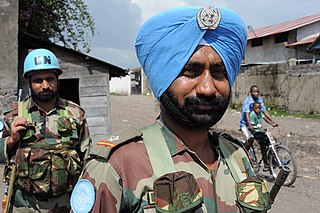
United Nations Security Council resolution 1316, adopted unanimously on 23 August 2000, after recalling resolutions 1273 (1999), 1291 (2000) and 1304 (2000) on situation in the Democratic Republic of the Congo, the Council extended the mandate of the United Nations Mission in the Democratic Republic of Congo (MONUC) until 15 October 2000.

United Nations Security Council resolution 1323, adopted unanimously on 13 October 2000, after recalling resolutions 1291 (2000), 1304 (2000) and 1316 (2000) on situation in the Democratic Republic of the Congo, the Council extended the mandate of the United Nations Mission in the Democratic Republic of Congo (MONUC) until 15 December 2000.
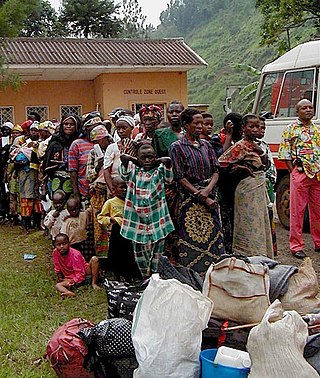
United Nations Security Council resolution 1332, adopted unanimously on 14 December 2000, after recalling resolutions 1234 (1999), 1258 (1999), 1265 (1999), 1273 (1999), 1279 (1999), 1291 (2000), 1296 (2000), 1304 (2000) and 1323 (2000) on situation in the Democratic Republic of the Congo, the Council extended the mandate of the United Nations Mission in the Democratic Republic of Congo (MONUC) until 15 June 2001.

United Nations Security Council resolution 1341, adopted unanimously on 22 February 2001, after recalling resolutions 1234 (1999), 1258 (1999), 1265 (1999), 1273 (1999), 1279 (1999), 1291 (2000), 1296 (2000), 1304 (2000), 1323 (2000) and 1332 (2000) on situation in the Democratic Republic of the Congo, the Council demanded that all parties to the conflict in the country implement disengagement plans and adopt withdrawal plans for foreign troops by 15 May 2001.
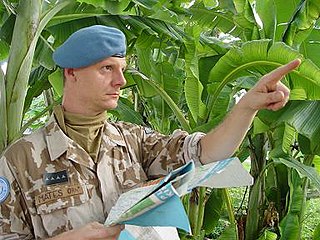
United Nations Security Council resolution 1355, adopted unanimously on 15 June 2001, after recalling resolutions 1234 (1999), 1258 (1999), 1265 (1999), 1273 (1999), 1279 (1999), 1291 (2000), 1296 (2000), 1304 (2000), 1323 (2000), 1332 (2000) and 1341 (2001) on situation in the Democratic Republic of the Congo, the Council extended the mandate of the United Nations Mission in the Democratic Republic of Congo (MONUC) until 15 June 2002 subject to review every four months.

United Nations Security Council resolution 1376, adopted unanimously on 9 November 2001, after recalling all previous resolutions on situation in the Democratic Republic of the Congo, the Council supported the third phase of the deployment of the United Nations Mission in the Democratic Republic of Congo (MONUC).
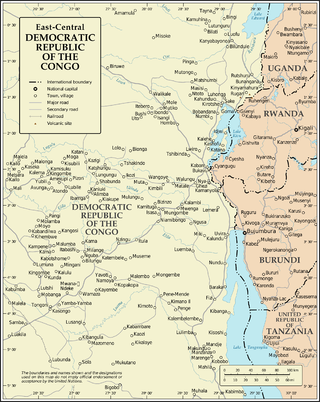
United Nations Security Council Resolution 1417 extended the mandate of the United Nations Organisation Mission in the Democratic Republic of Congo (MONUC) until 30 June 2003. It was unanimously adopted by the United Nations Security Council on 14 June 2002, at its 4,554th meeting. Resolution 1417 was passed after the security council recalled its previous resolutions regarding the matter, particularly Resolution 1355 (2001).

United Nations Security Council resolution 1445 was adopted unanimously on 4 December 2002. After recalling all previous resolutions on situation in the Democratic Republic of the Congo, the council expanded the military component of the United Nations Mission in the Democratic Republic of Congo (MONUC) to a level of 8,700 military personnel–up from 4,250–in two task forces.
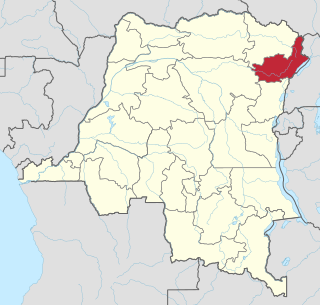
United Nations Security Council resolution 1468, adopted unanimously on 20 March 2003, after recalling previous resolutions on the situation in the Democratic Republic of the Congo, the Council welcomed an agreement on the establishment of a transitional government and requested an increased presence of the United Nations Mission in the Democratic Republic of Congo (MONUC) in the Ituri region in the east of the country amid escalating violence.
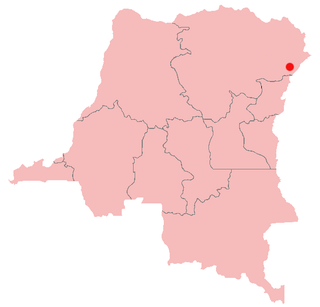
United Nations Security Council Resolution 1484, adopted unanimously on 30 May 2003, after recalling previous resolutions on the situation in the Democratic Republic of the Congo, the Council authorised Operation Artemis in Bunia, the capital of Ituri Province, amid the deteriorating security situation in the area.

United Nations Security Council resolution 1493, adopted unanimously on 28 July 2003, after recalling all resolutions on the situation in the Democratic Republic of the Congo, the council extended the mandate of the United Nations Mission in the Democratic Republic of Congo (MONUC) until 30 July 2004 and raised its troop level from 8,700 to 10,800.
The Congolese Rally for Democracy–Goma was a faction of the Congolese Rally for Democracy, a rebel movement based in Goma, Democratic Republic of the Congo (DRC) during the Second Congo War (1998–2003). After the war, some members of the group continued sporadic fighting in North Kivu. The movement also entered mainstream politics, participating in democratic elections with little success.

Pweto is a town in the Haut-Katanga Province of the Democratic Republic of the Congo (DRC). It is the administrative center of Pweto Territory. The town was the scene of a decisive battle in December 2000 during the Second Congo War which resulted in both sides making more active efforts to achieve peace. Pweto and the surrounding region were devastated during the war. As of 2011 little had been done to restore infrastructure or rebuild the economy. The town is served by Pweto Airport.
Moliro is a community in the east of the Democratic Republic of the Congo beside Lake Tanganyika on the border with Zambia. It is in Tanganyika province.














